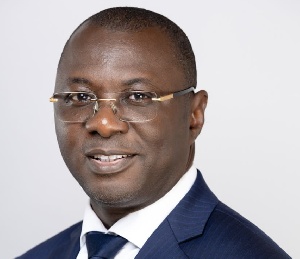- Home - News
- Elections 2024
- News Archive
- Crime & Punishment
- Politics
- Regional
- Editorial
- Health
- Ghanaians Abroad
- Tabloid
- Africa
- Religion
- Photo Archives
- Press Release
General News of Tuesday, 20 May 2025
Source: www.ghanawebbers.com
Ex-Finance Minister calls for tougher reforms to curb Ghana’s tax revenue leakages
Former Finance Minister Dr. Mohammed Amin Adam has called for urgent reforms in Ghana’s tax system. He aims to stop revenue leakages and secure economic independence.
Dr. Adam spoke at the National Dialogue on Tackling Tax Revenue Leakages. This event took place at the University of Professional Studies, Accra (UPSA). He described the current tax system as “inefficient and porous.” He warned that without action, Ghana will sacrifice development and sovereignty.
“Our failure to generate optimal tax revenues harms sustainable economic growth,” he said. “We have tax instruments and reforms; the issue is implementation and compliance.”
He cited a 2022 GRA analysis showing Ghana collects only 39% of potential VAT revenue. It also collects just 18.5% of potential corporate tax revenue. He called these losses “staggering.”
“These leakages mean fewer schools, unbuilt hospitals, and unpaved roads,” he added.
Dr. Adam suggested focusing on compliance instead of raising taxes or adding new levies. “Our tax system is like a leaking pipe; fix the leaks instead of adding pressure,” he explained.
He emphasized reforms from his tenure, such as the Revenue Assurance Compliance and Enforcement (RACE) initiative. Other initiatives include the Integrated Customs Management System (ICUMS) and linking the Ghana Card with taxes. He also urged a complete overhaul of taxing high-revenue sectors like mining and petroleum.
“The current approach creates uncertainty and deters investment,” he noted. “We need predictable rules, including a well-structured resource rent tax.”
He pointed out issues like illicit financial flows and a narrow tax base dominated by the informal sector. “The informal sector makes up 72% of GDP and 92% of registered companies,” he said.
Looking ahead, Dr. Adam warned about threats to revenue from declining aid, US remittance taxes, trade wars, and green financing impacts on incentives.
“Either we strengthen tax compliance today or keep losing resources,” he concluded. “Let this dialogue be a turning point for transformative action.”
The event gathered leaders from academia, government, and civil society.











